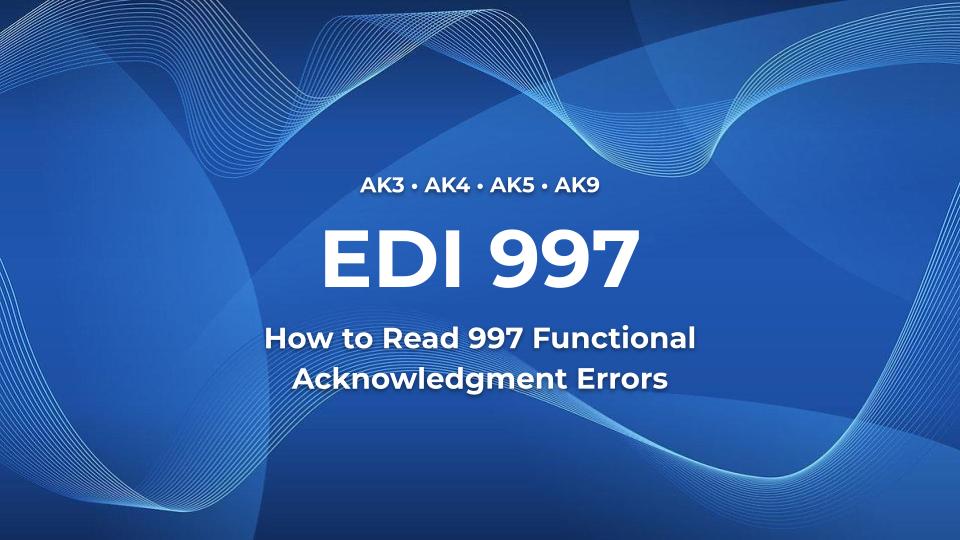
One of the most effective tools to streamline supply chain processes is EDI, a system that enables businesses to exchange documents electronically. However, traditional EDI solutions can sometimes be rigid and require significant manual intervention. (Think of it like The Big Bang Theroy's Sheldon Cooper trying to change his spot on the couch — there’s just no budging him! While he might be brilliant, his inflexibility can be a bit of a hassle.)
This is where API integration comes into play, modernizing the way businesses handle EDI transactions and unlocking new levels of efficiency.
Application Programming Interfaces (APIs) allow different software systems to communicate with each other in real time. When integrated with EDI, APIs can transform the way data flows between systems, making it more seamless and instantaneous. This is particularly valuable for industries like e-commerce, logistics, and manufacturing, where speed and accuracy in data exchange are critical to success.
APIs in EDI enable real-time transmission of key business documents, such as purchase orders, invoices, and shipping notifications, without the need for batch processing or manual input. This means that as soon as a transaction occurs, the relevant data is instantly sent to the appropriate trading partner, eliminating delays and reducing the risk of errors.
API integration provides a boost to your processes in many ways.
Traditional EDI processes often rely on batch processing, where documents are sent at scheduled intervals. API integration, on the other hand, allows for real-time data exchange. This instant communication between systems can be a life saver for businesses needing to respond quickly to market changes or customer demands.
For example, in e-commerce, a retailer using API-integrated EDI can update inventory levels, process orders, and send shipment notifications almost instantaneously. This ensures that customers receive up-to-date information, leading to a better overall experience.
Manual data entry or handling large batches of transactions can lead to costly mistakes. API integration eliminates the need for manual input by automating the exchange of EDI documents between systems. This not only reduces the risk of human error but also ensures that critical business data — such as pricing, inventory, or shipping details — is always accurate.
API-based EDI systems are inherently more scalable than traditional on-premise EDI solutions. As a business grows and adds more trading partners, it’s easy to scale up the integration without having to overhaul the entire system. Furthermore, APIs can be customized to fit specific business requirements, ensuring that the EDI processes align with unique workflows, whether you're using ERP, WMS, or TMS platforms.
This scalability is particularly important for growing businesses that may need to onboard new trading partners quickly. API integration allows for faster and more flexible partner onboarding compared to traditional methods.
API integration provides businesses with enhanced visibility into their data flows. This means that companies can track transactions in real time, quickly identifying and resolving any issues that arise. By having greater control over the data moving through the supply chain, businesses can make more informed decisions, leading to improved operational efficiency and customer satisfaction.
By automating processes and reducing errors, API integration can lead to significant cost savings. For instance, businesses can save on labor costs associated with manual data entry and on fees incurred from correcting transactional errors. Additionally, the ability to scale easily without incurring high IT infrastructure costs makes API-based EDI solutions more affordable, especially for small to medium-sized businesses.
API integration with EDI is particularly advantageous for businesses engaged in drop shipping. With real-time data exchange, companies can notify customers of shipment status faster and provide more accurate delivery times.
This can greatly improve the customer experience, as expectations for fast and transparent shipping are at an all-time high. These days, we expect things to arrive almost instantly. Remember when waiting a week for your order to show up was the norm? And you had no idea where it was in the meantime because tracking wasn’t really a thing? We've come a long way from those days, and the bar just keeps getting higher.
API-based EDI integration can connect with virtually any system that supports APIs, making it an ideal solution for a wide range of industries and platforms. For example:
API-based EDI isn’t just for large enterprises. Small and medium-sized businesses can equally benefit from this technology, allowing them to compete on a level playing field with larger competitors by offering the same level of efficiency and service.
In today’s global supply chain environment, real-time, automated data exchange is no longer a luxury — it’s a necessity. API integration with EDI empowers businesses to increase operational efficiency, reduce errors, and scale with ease. By adopting API-based EDI solutions, companies can streamline their processes, improve customer satisfaction, and stay competitive in an ever-changing market.
At BOLD VAN, we pride ourselves on offering flexible API integration that works with virtually any system. If it has an API, we can integrate with it! Our platform seamlessly connects with a wide range of software and service providers, making it easier than ever to streamline your EDI processes. Whether you're running a large e-commerce operation or managing complex supply chain logistics, we've got you covered.
To learn more about how EDI and API outsourcing can improve your business, contact BOLD VAN: call 844-265-3777, email info@boldvan.com, or start your three-month trial.
MICROSOFT DYNAMICS USERS: UP THE ANTE WITH API
INFOR VISUAL SOFTWARE USERS CAN NOW ADD API
How BOLD VAN's API Can Improve Workflow
A Xero API Connects Your Essential Applications
API and EDI: Why You'll Need Both

Preparing to onboard with Tractor Supply? Learn what to verify before accepting your first EDI 850 to prevent rejections, chargebacks, and shipment delays.

Clear up ISA qualifier confusion before it disrupts your EDI. Learn when to use 01, 08, or ZZ, how to avoid common envelope rejections, and how BOLD VAN helps prevent costly setup errors.

Learn how to interpret EDI 997 error codes, fix AK3/AK4 issues fast, and prevent costly rejections with smarter validation and visibility tools.